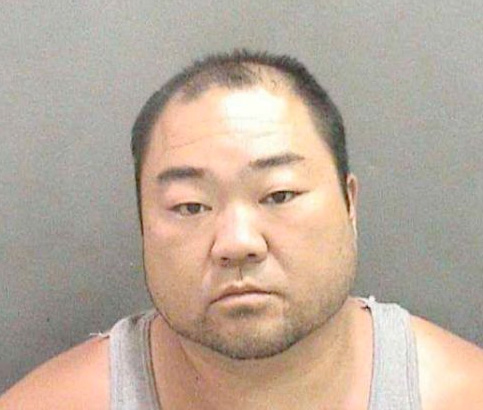 The author took this photo in the financial district of New York on Sept. 11, 2001. An unknown person scrawled the date on the hood of a car covered in ash.
The author took this photo in the financial district of New York on Sept. 11, 2001. An unknown person scrawled the date on the hood of a car covered in ash.
It’s the strangest thing to walk down a pitch-black Wall Street in inch-deep ash. Seeing shoes littering the empty streets, abandoned roach coaches with a complete stock of donuts and bagels, and each car lining the sidewalk completely covered in ash with the back window blown out. Picking up charred pieces of paper that have people’s Traveler’s Group account statements.
I wrote that for KoreAm as an apple-cheeked Columbia School of Journalism student. Ten years later, I still remember the day vividly. My roommate woke me up to the news, and my first assumption was that a small Cessna-type aircraft must have crashed into the twin towers of the World Trade Center, but as the events unfolded, my horror grew.
Calls from friends and family across the country poured in and, just before the phone networks became overwhelmed, I received a call from my father, former publisher of the Korea Times of San Francisco. After confirming I was OK, he urged me to head downtown to witness the events firsthand. What?! Me? I was only a student, I thought. After much hemming and hawing, my dad basically said, “Get your ass down there!”
Dutiful son complied and, since the subway system was shut down, I began walking the more than 120 blocks to Lower Manhattan. All day I walked and saw horrified faces moving in the opposite direction. At Canal Street near Chinatown, police barricades blocked my path, but I bypassed them by taking a roundabout route along the East River. I made it to the financial district at dusk and surveyed the carnage. It was a ghost town. A war zone. It reeked of smoke and felt like death. It was here where I pocketed two charred financial statements for posterity.
They have become more than mementos. As I recently removed the pieces from the two Ziplock baggies I had kept them in these past 10 years, I could still smell the faint odor of ash. Every year on the anniversary I look at them and the grainy photographs I took with a disposable camera that day. Occasionally, I even entertain the thought of finding the California man to whom the financial statements belong.
In total, there were nearly 3,000 casualties from the four coordinated attacks by al-Qaeda on 9/11, including 2,753 who died in the World Trade Center attacks.
In the years that followed, I would often swap stories with other New York survivors. We share a unique bond. We were the “lucky ones,” and were forever changed that day.
“There is a part of me that feels more vulnerable because of it,” said Liza Lowinger, a Korean American who runs a New York-based marketing agency. “I think that feeling of not being able to be hurt and affected in New York City went away that day. But I would definitely say that I’m a stronger person for it. I’m proud to have been there, proud to be a New Yorker.”
She said the terrorist attacks have helped her realize how precious life is, “to not waste the day and enjoy every moment no matter if it’s painful, exciting, whatever. You just never know what’s going to happen tomorrow.”
Monica Hong was a first-year dramatic arts graduate student who moved into an apartment four blocks away from the World Trade Center the night before the attacks.
“I watched them burn and saw the first tower fall, then I turned around because I didn’t want to see the other tower fall,” Hong recalled.
Deeply traumatized by the attacks, Hong decided to defer her graduate studies for a year. As it turns out, she would meet her future husband in the next year’s class.
“I do think that it changed my life,” she said. “It’s one of those things where people say it was a seminal moment or whatever, but it really changed the course of my life. And I was damn lucky that day, too.”
Hong, an actress now living in Los Angeles, said she was planning to travel to New York City for the 10th anniversary.
“I want to go because it affected me so much,” she said. “Up to that point, I lived a pretty enchanted life, and that was like the thing that broke it and made you realize that that was our moment in history.”
I, too, feel like it was our moment. Events that day shaped who we are as Americans, for better or for worse. Back then, news anchor Dan Rather predicted the “war on terror” would last for 10 years. That timetable expires this month and, despite the recent death of Osama bin Laden, the war seems far from over. —Y. Peter Kang
This article appeared in the September 2011 issue of KoreAm. Subscribe today!
[ad#graphic-square]






